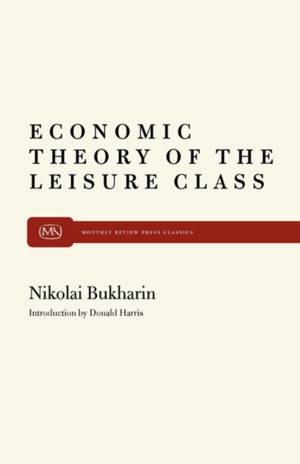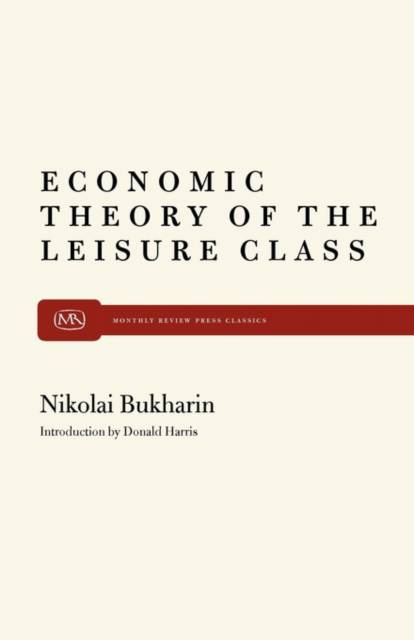
- Afhalen na 1 uur in een winkel met voorraad
- Gratis thuislevering in België vanaf € 30
- Ruim aanbod met 7 miljoen producten
- Afhalen na 1 uur in een winkel met voorraad
- Gratis thuislevering in België vanaf € 30
- Ruim aanbod met 7 miljoen producten
Zoeken
Omschrijving
Bukharin completed this work in 1914; it represented an attempt to grapple with the Austrian School of political economy, as represented chiefly by Eugen von Böhm-Bawerk. Bukharin interprets the school as reflecting the social position of the rentier stratum of the capitalist class, which tends to view the economy from the point of view of consumption rather than production. But this is merely the introduction to a close consideration of the theory of marginal utility as contrasted with the labor theory of value which formed the starting point of both Marxism and classical economics. His discussion, therefore, while it does not deal with the many changes and refinements of neoclassical economics, does contrast, in polemical form, Marxism with the fundamental premises of modern academic economics. His discussion of "subjective" and "objective" value definitions, in particular, will help clarify for many the essential differences that distinguish Marxist political economy from other schools.
Specificaties
Betrokkenen
- Auteur(s):
- Uitgeverij:
Inhoud
- Aantal bladzijden:
- 224
- Taal:
- Engels
Eigenschappen
- Productcode (EAN):
- 9780853452614
- Verschijningsdatum:
- 1/01/1972
- Uitvoering:
- Paperback
- Formaat:
- Trade paperback (VS)
- Afmetingen:
- 140 mm x 216 mm
- Gewicht:
- 299 g

Alleen bij Standaard Boekhandel
+ 67 punten op je klantenkaart van Standaard Boekhandel
Beoordelingen
We publiceren alleen reviews die voldoen aan de voorwaarden voor reviews. Bekijk onze voorwaarden voor reviews.











